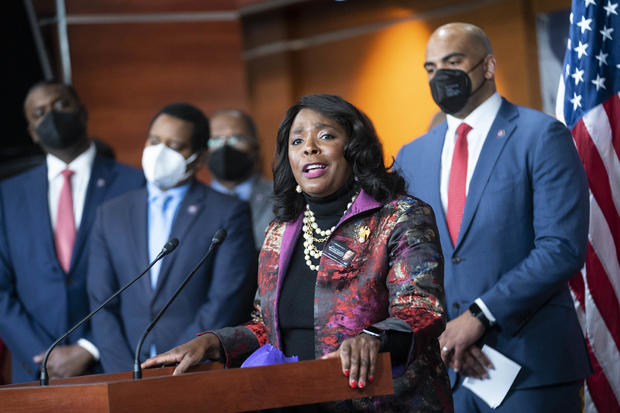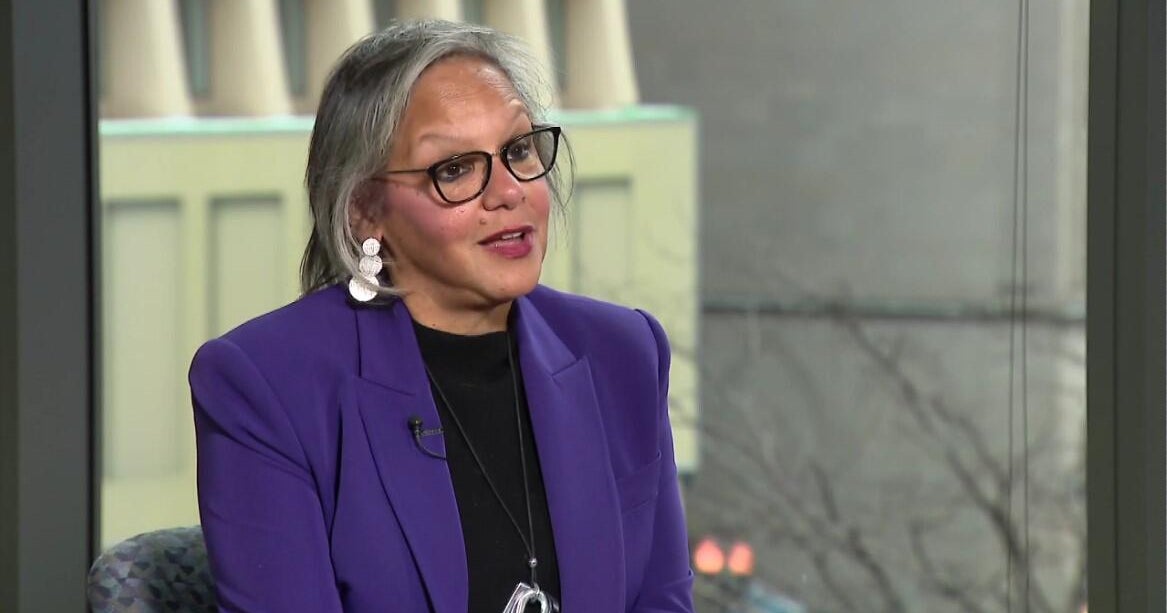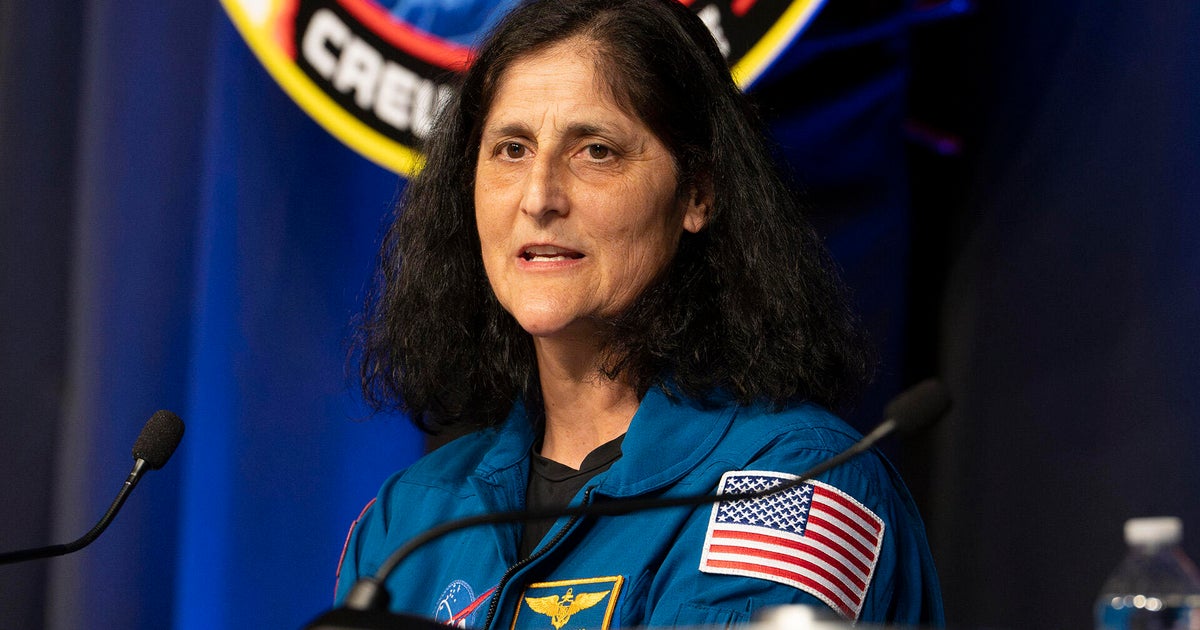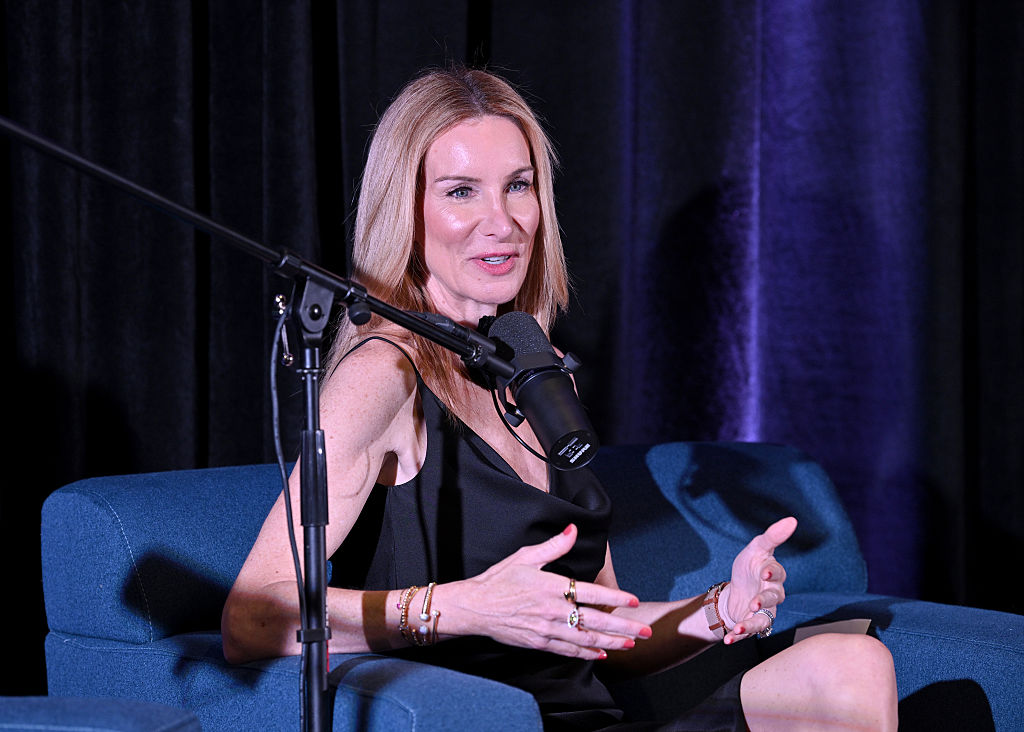"The Takeout" with Congresswoman and Selma native Terri Sewell
For Selma native and Congressman Terri Sewell, the city's importance in the fight for equal voting rights is embedded in her family history.
"I'm a third generation Selmian, and my dad grew up in segregated Selma, my grandmother grew up in segregated Selma," Sewell, the first Black woman to serve in the Alabama congressional delegation, told CBS News chief Washington correspondent Major Garrett this week on "The Takeout" podcast. "You don't grow up in Selma without a real understanding of the intersection between history, both Confederate history and civil rights history. It converges in Selma, Alabama."
Sewell is carrying on her family's legacy as House Democrats push for new voting rights legislation. She introduced the John Lewis Voting Rights Advancement Act, which would reinstate part of the Voting Rights Act of 1965. The measure, known as H.R. 4, passed in the House in 2021 but remains stalled in the Senate because it lacks the 60-vote super majority needed to overcome a filibuster.
On Tuesday, Sewell traveled with President Biden to Atlanta, where he called on the Senate to change its rules, so that the voting rights legislation, which would establish national election standards, could avert the filibuster and be passed with a simple majority. It was the first time the president and longtime former senator had publicly called for the filibuster rules to be changed.
"I would have loved to for him to have given that speech three months ago, but the reality is I was honored to be there [Tuesday] when he did give the speech," Sewell said, echoing frustrations of other progressives who say Mr. Biden's speech should have come earlier in his term. "I was looking to hear from the president directly about the rule change, the Senate rule change, that is necessary in order for the bill to come to the Senate floor for a vote."
"We have an ongoing concerted effort by state legislatures across this country to impose greater restrictions on voting and to actually stop certain segments of the population from voting," Sewell continued. "Frankly, what these two bills will do will provide federal oversight for those most egregious state actors, and also provide the mechanism by which we promote voting and allow people the opportunity to be able to access the ballot box."
Sewell noted that though Democratic Senators Joe Manchin and Kyrsten Sinema won't support changing filibuster rules, they support voting rights, and further, Manchin helped write the Freedom to Vote Act.
"The Freedom to Vote Act is actually a bill that was crafted by the senators, including Senator Manchin," Sewell said. "I think that both bills are critically important to our democracy in helping to make sure that all Americans have equal access to the ballot box."
Another issue Sewell is intent on confronting the disparity between voter ID laws, which differ by state.
"An ID in and of itself is not what I'm saying is discriminatory. Frankly, you have to be able to prove who you are on that voter roll to get that ballot, that's fine," Sewell told Garrett. "But when states are picking winners and losers based on the types of IDs that they are requiring, if you allow a hunting license but don't allow a university student ID, you're making a decision about which voters are more likely to vote, having an easier time getting to the ballot box than the other."
And she also discussed with Garrett the January 6 House select committee's attempt to secure the cooperation of House Republican Leader Kevin McCarthy. Though McCarthy says he won't cooperate, Sewell "absolutely" believes he owes it to the committee to disclose whether "he has anything to do with any of the conversations that were had," behind the scenes with former President Trump during the Capitol siege. She feels that Trump was "culpable" for his role on that day.
"I do believe that he incited those Americans. He encouraged them to come in and to try to make sure that the election was not certified," Sewell said. "I think that it was definitely an action that was not becoming of a president, let alone a fellow American. And I believe that no one is above the law."
Highlights:
Biden's speech in support of changing the filibuster: "I would have loved to for him to have given that speech three months ago, but the reality is I was honored to be there [Tuesday] when he did give the speech... I was looking to hear from the President directly about the rule change, the Senate rule change, that is necessary in order for the bill to come to the Senate floor for a vote."
Trump's role in Capitol attack on January 6, 2021: "I do believe that he incited those Americans. He encouraged them to come in and to try to make sure that the election was not certified. I think that it was definitely an action that was not becoming of a president, let alone a fellow American. And I believe that no one is above the law."
Growing up in Selma: "I'm a third generation Selmian, and my dad grew up in segregated Selma, my grandmother grew up in segregated Selma... You don't grow up in Selma without a real understanding of the intersection between history, both Confederate history and civil rights history. It converges in Selma, Alabama."
Voter ID laws: "An ID in and of itself is not what I'm saying is discriminatory. Frankly, you have to be able to prove who you are on that voter roll to get that ballot, that's fine. But when states are picking winners and losers based on the types of IDs that they are requiring, if you allow a hunting license but don't allow a university student ID, you're making a decision about which voters are more likely to vote, having an easier time getting to the ballot box than the other. And what I'm saying is we have to level the playing field."
Voting rights legislation: "What these two bills will do will provide federal oversight for those most egregious state actors, and also provide the mechanism by which we promote voting and allow people the opportunity to be able to access the ballot box."
Executive producer: Arden Farhi
Producers: Jamie Benson, Jacob Rosen, Sara Cook and Eleanor Watson
CBSN Production: Eric Soussanin
Show email: TakeoutPodcast@cbsnews.com
Twitter: @TakeoutPodcast
Instagram: @TakeoutPodcast
Facebook: Facebook.com/TakeoutPodcast




